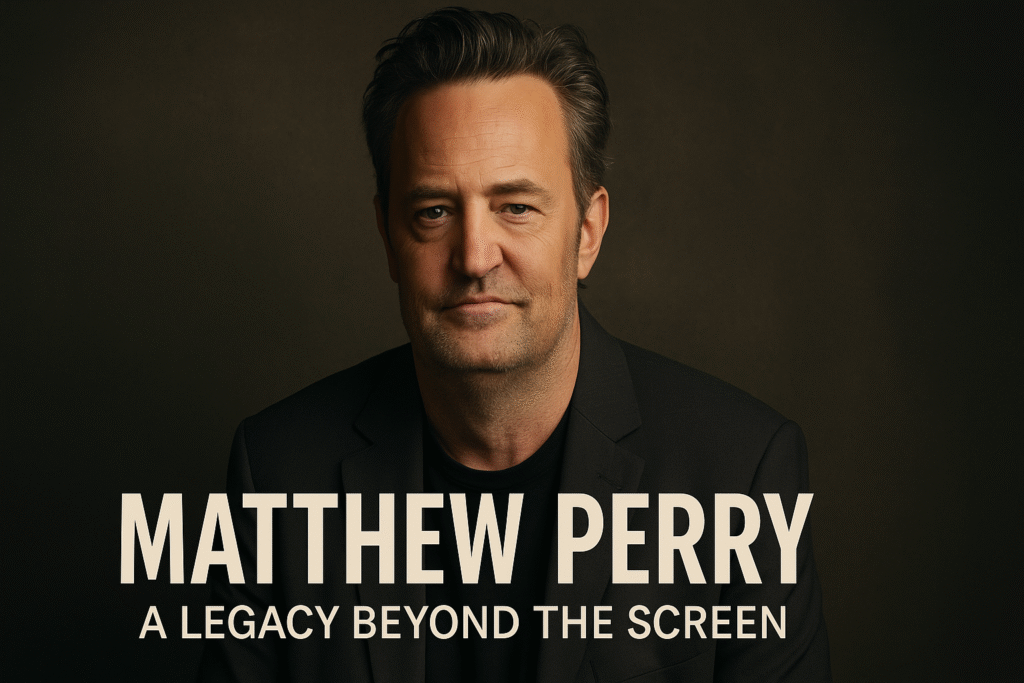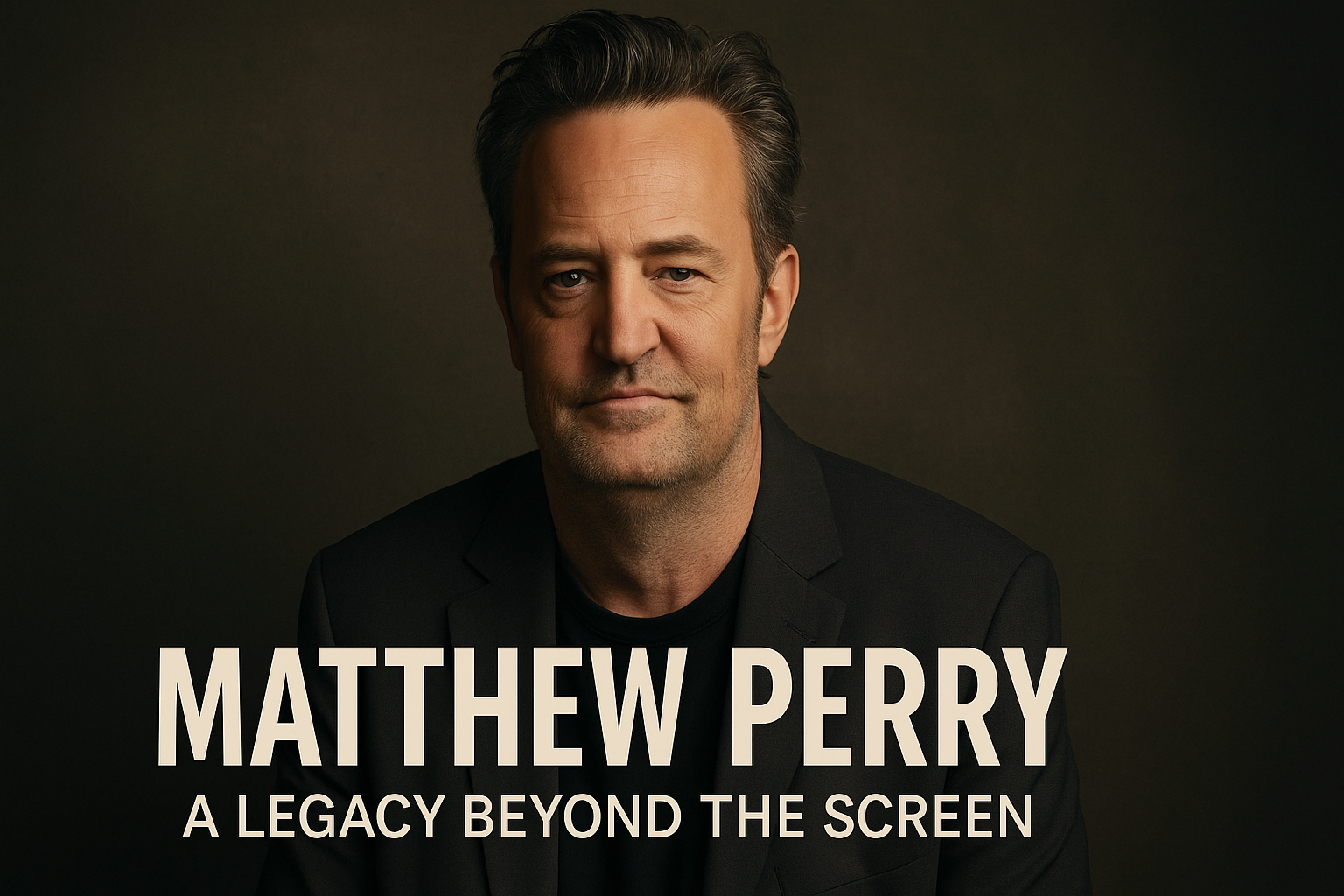Matthew Perry, forever etched in the hearts of millions as Chandler Bing from the iconic sitcom Friends, was more than just a television star.
His life, marked by extraordinary highs and devastating lows, tells a story of resilience, vulnerability, and a relentless pursuit to help others.
Perry’s 2022 memoir, Friends, Lovers, and the Big Terrible Thing, laid bare his decades-long struggle with addiction, offering a raw and honest look at a man who, despite his fame, battled personal demons in the shadows.
His untimely death on October 28, 2023, at the age of 54, left a void in the entertainment world and among those who saw him as a beacon of hope in the fight against addiction.
This article explores Perry’s life, his impact through Friends, and his enduring legacy as an advocate for recovery.
Born on August 19, 1969, in Williamstown, Massachusetts, Matthew Langford Perry grew up in a world of contrasts.
His mother, Suzanne Marie Morrison, was a Canadian journalist and press secretary to Prime Minister Pierre Trudeau, while his father, John Bennett Perry, was an American actor and former model.
Raised primarily in Ottawa, Canada, Perry’s early life was shaped by his parents’ divorce and his own burgeoning passion for acting. By his teens, he was already grappling with alcohol use, a precursor to the addiction that would define much of his life.
At 24, Perry landed the role of Chandler Bing on Friends, a show that would not only redefine sitcoms but also catapult him to global stardom.
Friends, which aired from 1994 to 2004, was a cultural juggernaut, and Perry’s portrayal of Chandler was its sarcastic, lovable heart.
His impeccable comedic timing and unique delivery—epitomized by the catchphrase “Could I be more [insert adjective]?”—made Chandler a fan favorite.
Perry’s ability to blend humor with emotional depth, particularly in Chandler’s romance with Monica Geller, elevated the character beyond the typical sitcom archetype.
Yet, behind the scenes, Perry was fighting a battle far removed from the laughter of Central Perk. He later revealed that he was often drunk, high, or hungover during filming, with entire seasons lost to the haze of addiction.
His co-stars, particularly Jennifer Aniston, offered unwavering support, with Aniston once confronting him about his drinking in a moment he described as “scary” but loving.
Perry’s addiction began in his teens with alcohol and escalated after a 1997 jet-ski accident led to a prescription for Vicodin.
By his own account, he was consuming up to 55 Vicodin pills a day at the height of his addiction, alongside alcohol and, later, opioids and ketamine.
His memoir details a harrowing near-death experience in 2018 when his colon exploded due to opioid overuse, landing him in a two-week coma with a 2% chance of survival.
Over his lifetime, Perry spent an estimated $9 million on recovery, including 15 rehab stays, 65 detox sessions, and 14 surgeries.

He attended approximately 6,000 Alcoholics Anonymous meetings and even converted his Malibu mansion into a sober living facility for two years. His commitment to recovery was not just personal but a mission to destigmatize addiction and support others.
In Friends, Lovers, and the Big Terrible Thing, Perry wrote without a ghostwriter, pouring his story onto the page with raw honesty.
The memoir, published in November 2022, broke sales records and resonated deeply with those in recovery. Readers praised its unflinching look at addiction’s toll, with one person noting on X, “His book was the first one I read this year and proof that having endless resources are never a cure for addiction.
” Perry’s goal was clear: he wanted to be remembered not just for Friends but for helping others. “When I die,” he said, “I want helping others to be the first thing that’s mentioned.”
The Matthew Perry Foundation, established posthumously, continues this mission, supporting those struggling with substance abuse.
Perry’s death, attributed to the acute effects of ketamine, sent shockwaves through the world. Found unresponsive in his Los Angeles hot tub, his passing was ruled an accidental drowning, with contributing factors including buprenorphine, coronary artery disease, and drowning.
The tragedy was compounded by revelations that his personal assistant and others had supplied him with ketamine, leading to charges against five individuals.
Despite his struggles, Perry’s final days were marked by optimism. Just a day before his death, he met with a friend and expressed excitement about a “second act,” including plans for a superhero project inspired by his love for Batman.
Beyond Friends, Perry’s career included roles in films like The Whole Nine Yards and TV shows like Studio 60 on the Sunset Strip. Yet, his legacy transcends his onscreen work.
His openness about addiction inspired countless individuals, as evidenced by tributes from fans and peers alike.
Adele paused a concert to honor his bravery, while Friends co-creators Marta Kauffman and David Crane mourned the loss of his “singular wit.” Even Canadian Prime Minister Justin Trudeau, a childhood acquaintance, paid tribute to Perry’s impact.
Perry’s life was a testament to the duality of fame—glamorous yet isolating, celebrated yet tormented. His memoir revealed a man who, despite his struggles, never lost his desire to connect and uplift others.
“I am no saint,” he wrote, “but once you have been at death’s door and you don’t die, you are plagued by this nagging question: Why have I been spared?” For Perry, the answer lay in helping others find sobriety, a mission that continues through his foundation and the countless lives touched by his story.
As fans revisit Friends and new generations discover Chandler’s quips, Perry’s true legacy lies in his courage to share his pain. His memoir, his advocacy, and his unwavering hope remind us that even in the darkest moments, there is light to be found—and shared.
